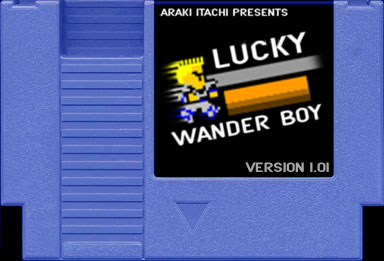Greetings,
Over two years of solid raucous, rag-tag efforts have culminated in the establishment of the fledgling wordpress blog for MEOWWW TAPES.
Meowww tapes is a (-n as yet) cassette production label of sorts based in san francisco.
Notable artists on this label don't yet exist, but there are thinly veiled ties to Bloodmouth, the band responsible for the first two inaugural released, Flesh Fog and In Memoriam Colossi , both of which are available from the blog's "releases" page.
All in all, real fun, and a pleasantly orchestrated awkward beginning.
09 January 2009
19 October 2008
08 October 2008
the world sure is full of things (one of many)
Metaphysics: the philosophical branch devoted to study and understanding of existence. metaphysicians seek to know the things in the world and their nature. Ontology and Cosmology divide study into the realms of what individuated stuff exists in the world and the totality of all matter and temporality.

Namco's Katamari video game series seems to exist to answer many of the great metaphysical quandries expressed by history's greatest minds in coherent, brightly colored, whimsically-soundtracked packages.
Katamari Damacy (2004, PS2), the series' debut allowed the player a view into this world; not only a view, but a task to understand and stake a claim in the space and temporality of the cosmos. The avatar is the Prince of the Cosmos, son of the King of the Cosmos, and is charged with using the katamari to roll up a new set of planets (the existing ones having been destroyed in an absent-minded wave of havoc by the King himself).
The Prince's task hurtles him into an epistemological journey whereby the player virtually takes inventory of the video game world by empirically "rolling" it up. The contents of this subsequent ball of knowable objects may be inspected later, to understand the finer details of the objects whose sum creates knowable world. It pays to note that this task is in itself a quest emerging absurdly as the Prince's (and by virtual extension the Player's) simultaneous birthright and freely chosen quest. The Prince is in the unique position to right the wrongs of his father's carelessness, but also requires tools of his father to properly and meaningfully reorganize the ruined universe.
Are we not similarly endowed with the twofold inheritance of a ruined universe, so presented to us as marred by our predecessors, but in many ways reliant on the tools they themselves provide us?
Perhaps.
And perhaps it is only by such a recognition that we may be able to take up the tools and reorganize the tattered spoilia of a knowable world, and by approaching and rolling up its pieces eventually arrive at a new and meaningful organization of pieces.
but there's much more to be said about such things.
I didn't even mention the cousins...

Namco's Katamari video game series seems to exist to answer many of the great metaphysical quandries expressed by history's greatest minds in coherent, brightly colored, whimsically-soundtracked packages.
Katamari Damacy (2004, PS2), the series' debut allowed the player a view into this world; not only a view, but a task to understand and stake a claim in the space and temporality of the cosmos. The avatar is the Prince of the Cosmos, son of the King of the Cosmos, and is charged with using the katamari to roll up a new set of planets (the existing ones having been destroyed in an absent-minded wave of havoc by the King himself).
The Prince's task hurtles him into an epistemological journey whereby the player virtually takes inventory of the video game world by empirically "rolling" it up. The contents of this subsequent ball of knowable objects may be inspected later, to understand the finer details of the objects whose sum creates knowable world. It pays to note that this task is in itself a quest emerging absurdly as the Prince's (and by virtual extension the Player's) simultaneous birthright and freely chosen quest. The Prince is in the unique position to right the wrongs of his father's carelessness, but also requires tools of his father to properly and meaningfully reorganize the ruined universe.
Are we not similarly endowed with the twofold inheritance of a ruined universe, so presented to us as marred by our predecessors, but in many ways reliant on the tools they themselves provide us?
Perhaps.
And perhaps it is only by such a recognition that we may be able to take up the tools and reorganize the tattered spoilia of a knowable world, and by approaching and rolling up its pieces eventually arrive at a new and meaningful organization of pieces.
but there's much more to be said about such things.
I didn't even mention the cousins...
jettisonning
aesthetics,
katamari,
metaphysics,
video game
20 June 2008
_____ is funny
While not all humor is formulaic, some definitely is.
It begins with the original joke, lifted in its glory from somewhere on the outskirts of the intarwebs (sic).
"I think Halo is a pretty cool guy. eh shoots aleins and doesn't afraid of anything."
This statement occurs as a functionally valid deductive argument, occurring conclusion first, with a two premises following in the second statement. The extrapolation of usable parts is simple, and commences as follows:
Conclusion: I think Halo is a pretty cool guy
Subject: Halo (in this case, the misappropriated game title as the name of the protagonist, Master Chief)
Predicate clause: is a pretty cool guy.
Premise 1: eh shoots aleins
Premise 2: (eh) doesn't afraid of anything
so:
where X is "Halo"
y is "shoots aleins"
z is "afraid of anything"
X does y
X does not z
Therefore:
X is a pretty cool guy
Allow me to divulge the utility of the madlib formula:
I think __(subject)__ is a pretty cool guy/girl. s/eh __(action)____ and doesn't afraid of anything.
It begins with the original joke, lifted in its glory from somewhere on the outskirts of the intarwebs (sic).
"I think Halo is a pretty cool guy. eh shoots aleins and doesn't afraid of anything."
This statement occurs as a functionally valid deductive argument, occurring conclusion first, with a two premises following in the second statement. The extrapolation of usable parts is simple, and commences as follows:
Conclusion: I think Halo is a pretty cool guy
Subject: Halo (in this case, the misappropriated game title as the name of the protagonist, Master Chief)
Predicate clause: is a pretty cool guy.
Premise 1: eh shoots aleins
Premise 2: (eh) doesn't afraid of anything
so:
where X is "Halo"
y is "shoots aleins"
z is "afraid of anything"
X does y
X does not z
Therefore:
X is a pretty cool guy
Allow me to divulge the utility of the madlib formula:
I think __(subject)__ is a pretty cool guy/girl. s/eh __(action)____ and doesn't afraid of anything.
13 June 2008
from whence it came
an identifiable and meaningful undercurrent intrinsic to the creation and maintenance of this collection of missives is that of a cogent philosophical and critical approach to a relatively new aesthetic: video games.

my experience and understanding of this field is easily traceable to one source, a novel by D.B. Weiss. Lucky Wander Boy is a foray into the world of protagonist Adam Pennyman, shaped as it is by what could be known as the golden age of video games, the classical period of coin slot arcade cabinets. Pennyman's life changes drastically as he attempts to create an "Encyclopedia of Obsolete Entertainments", in which he approaches several arcade classics from a critical stance, analyzing their technical specifics, but more importantly, delving into aspects normally reserved for more classical aesthetic judgments: motif, myth, symbolism, et al.
Weiss' detail in the parts of Lucky Wander Boy devoted to Pennyman's Encyclopedia struck a chord in my own understanding of video game content and culture, as well as their intersection with reality and other cultural media. What followed was my own meager advances into aesthetic and critical theories, beginning with the most meaningful and symbolically dense games in my repertoire.

my experience and understanding of this field is easily traceable to one source, a novel by D.B. Weiss. Lucky Wander Boy is a foray into the world of protagonist Adam Pennyman, shaped as it is by what could be known as the golden age of video games, the classical period of coin slot arcade cabinets. Pennyman's life changes drastically as he attempts to create an "Encyclopedia of Obsolete Entertainments", in which he approaches several arcade classics from a critical stance, analyzing their technical specifics, but more importantly, delving into aspects normally reserved for more classical aesthetic judgments: motif, myth, symbolism, et al.
Weiss' detail in the parts of Lucky Wander Boy devoted to Pennyman's Encyclopedia struck a chord in my own understanding of video game content and culture, as well as their intersection with reality and other cultural media. What followed was my own meager advances into aesthetic and critical theories, beginning with the most meaningful and symbolically dense games in my repertoire.
jettisonning
aesthetics,
lucky wander boy
12 June 2008
by way of introduction
what follows occurs in the intersection of imaginary, virtual and real, if such distinctions can be meaningfully made. or perhaps the ensuing thoughts, concepts and conditions reside in a liminal space between these realms. at any rate, I want to explore and share a quest for understanding.
the fields in which this intellectual play is held are those of sound and symbol, and the tools and moves have largely not yet been defined. those that exist are to be reevaluated for their use and meaning, and taken into the greater movement.
formostly, the rule of law, absurd law, is forever in effect, and no person, place, thing, or concept is above it.
the fields in which this intellectual play is held are those of sound and symbol, and the tools and moves have largely not yet been defined. those that exist are to be reevaluated for their use and meaning, and taken into the greater movement.
formostly, the rule of law, absurd law, is forever in effect, and no person, place, thing, or concept is above it.
jettisonning
absurd,
concept,
introductory,
sound,
symbol
Subscribe to:
Posts (Atom)
